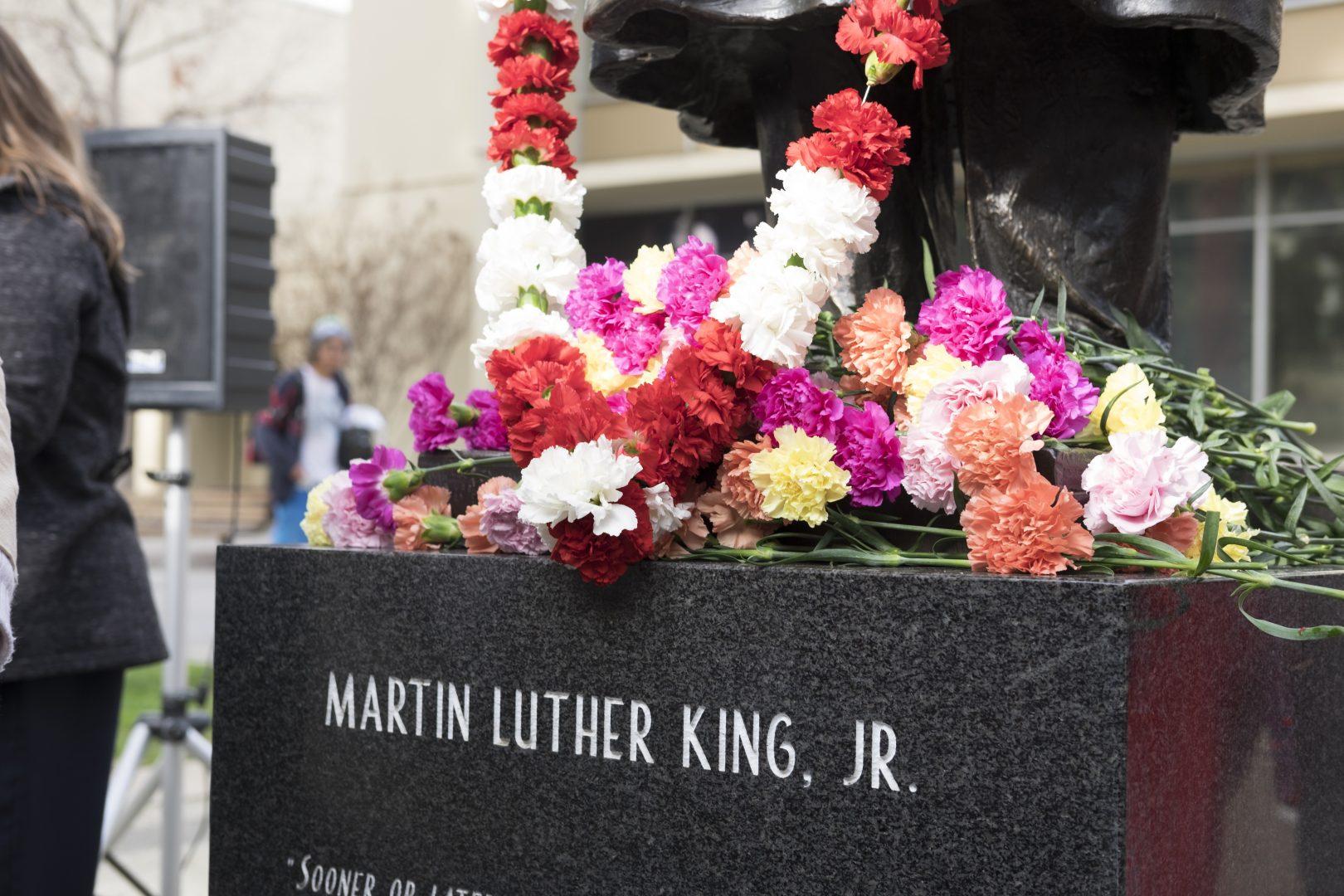Weeks before he was assassinated, Dr. Martin Luther King Jr. began a movement for workers’ rights.
Fifty years later, the Services Employees International Union (SEIU) Local 100 and the NAACP have vowed to continue the fight. In a speech to sanitation workers a day before his death, King spoke on the significance of jobs that were not seen as “professional.”
“But let me say to you tonight that whenever you are engaged in work that serves humanity and is for the building of humanity, it has dignity, and it has worth,” he said in his speech.
“Undoing Injustice, Doing Justice: A Third Reconstruction in the context of Janus v. AFSCME,” was held to honor King’s legacy, while also showing how the Janus v. AFSCME case could be detrimental to the mission King began.
The case is being heard by the U.S. Supreme Court and could stop unions from forcing non-union employees to pay union dues. Pastors, college educators, local activists and students spoke in support of workers’ rights in front a packed crowd at Fresno State’s Residence Dining Hall last Wednesday.
Keynote speaker Yvonne R. Walker, president of SEIU Local 1000, wasted no time calling for action from the attendees.
“Understand brothers and sisters — we are at war,” Walker said. “They said ‘the revolution will not be televised.’ I’m gonna let you in on a little secret, the revolution is here, and it is all of us in this room.”
Walker added that while the issue in the Janus v. AFSCME is union dues, it can later be healthcare and then job security. She encouraged the audience to do more than say “no” to injustice.
“You can’t afford to not go door-to-door. You can’t afford not to be on a phone bank. And you can’t afford not to vote,” Walker said.
The revolution and actions that Walker encouraged the audience to take were all put forth with the goal of a Third Reconstruction.
Ted Burnett, deputy field director of the SEIU Local 1000, provided historical context for the Third Reconstruction, a movement created by Rev. William J. Barber to tackle racial and economic inequality.
The First Reconstruction began in 1865, directly after the emancipation. The name is derived from then President Abraham Lincoln’s effort to bring the nation back together as a slave-free country.
The Second Reconstruction came during the civil rights movement, when everyday Americans protested for the rights of African-Americans.
“We must understand that the blueprint of race and class is part of our history. The two are joined at the hip,” Burnett said.
Charié Payne, president of Fresno State’s NAACP chapter, spoke for “the next generation” in support of Burnett and Walker’s cause.
She said that an unfair economic distribution has taken place of the shackles and segregation held in years prior.
“The Supreme Court case of Janus v. AFSCME is nothing but a reflection of an ongoing struggle where the rich and privileged reap the benefits of the working class, while riding on their backs,” Payne said.
Other speakers featured during the conference included Dr. Walter Brooks, dean emeritus at Fresno City College.
Brooks honored figures throughout history who took action in the fight for civil rights. He called them “barrier busters.”
Alexandria Bens, president of the Pan-African Club at Fresno City College, said the conference really encouraged her to “mobilize” in support of this cause.
“Our life in the near future, if we don’t fight, we won’t have an opportunity for a life,” Bens said.




